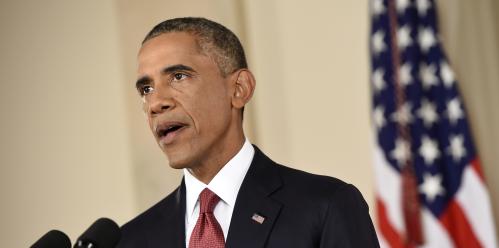Steven Koltai will discuss his new book, “Peace Through Entrepreneurship: Investing in a Startup Culture for Security and Development”, in a public event at Brookings on September 13 at 10:00 a.m.
Last year, Foreign Affairs devoted one of its bimonthly issues to entrepreneurship. “Here come the disrupters!” blared the cover. Amazon’s Jeff Bezos featured in the first piece, followed by interviews with the founders of international mobile firms, iRobot, and Skype, and an investor in Cisco, Google, and other internet darlings. “Entrepreneurship” is synonymous with “technology” appeared to be the presumption, and the ensuing articles largely concurred, couching policy analysis in the language and examples of Silicon Valley.
But entrepreneurship is also low– and no– as well as high-tech. And all three types of entrepreneurship are vital when it comes to foreign policy.
The world’s most unstable places are unstable primarily, I believe, because their young people can’t find jobs. Youth unemployment rates in the Middle East and North Africa top 40 percent, and virtually every study on the topic points to the destabilizing effects of joblessness on every aspect of society. Unemployment is a prime motivation to join rebel causes; likelihood of civil war rises with decline in economic growth; economists attribute the Arab Spring to economic hopelessness, not ideological struggle. Terror and America’s most vexing foreign policy challenges—terrorism, chaos, and contagious violence—emanate from the lands of overwhelming unemployment and resulting despair.
A clear foreign policy goal for the United States, therefore, has to be addressing joblessness. And what do we know is the single greatest job-creator, in our own economy as well as worldwide? Entrepreneurship. The elevation of entrepreneurship in the service of foreign policy must be one of America’s greatest new priorities because entrepreneurship creates jobs. In fact, young firms contribute nearly all of an economy’s net job creation.[1] In countries rich and poor, young, initially small firms are the ones that generate jobs, not large, established (and in developing countries, often government-owned) companies. In addition, young firms are the ones that, as Egyptian-American investor Ahmed El Alfi says, “give people something to live for, instead of the guys that pitch them something to die for.”
While dynamic tech firms do spawn in surprising places—Nairobi-based Ushahidi’s crowdsourced mapping tool rose to fame during Kenya’s 2008 post-election violence—“no tech and low tech” ventures must be considered along with high tech startups when targeting job creation in some of the most troubled parts of the world. Most people who study entrepreneurship have a tech-neutral definition of “entrepreneur” that resembles mine: “A person with the vision to see a new product or process and the ability to make it happen.” When we remind ourselves that entrepreneurs can also be no- and low-tech, we remind ourselves that entrepreneurs are everywhere.
Some people develop their ideas in ecosystems rich with angel investors, shared workspaces, educated and skilled labor, and regulatory incentives. But many do not. Yet they still exist. When I served as Senior Advisor for Entrepreneurship in Hillary Clinton’s State Department, I encountered Go-Jek, a motorbike taxi startup in Jakarta. Last month it raised $550 million (on a total valuation of over $1.2 billion), angling to challenge Uber. Indonesia has a World Bank “Ease of Doing Business” ranking worse than Kenya. Helping the potential Go-Jeks of the world to succeed and create jobs (not propping them up) is a win for everyone.
If jobs and economic growth are the foundation of peaceful, civil societies, then promoting entrepreneurship and supporting entrepreneurs should be a pillar of the U.S. government’s work abroad. It is not. Independently, both the Aspen Network of Development Entrepreneurs and I have calculated that the U.S. government spends no more than one percent of its foreign aid budget on entrepreneurship programs.[2] This is shockingly low for a country that prides itself on its innovation culture—and which could leverage it to address one of the fundamental drivers of unrest in the world, namely, joblessness.
Promoting entrepreneurship means bolstering entrepreneurship ecosystems. It means seeding a city or region with business plan competitions, management seminars, and mentorship networks; priming funding avenues and identifying champions in local government—all the good stuff we see not just in Silicon Valley, but in Austin, Boulder, and Boston as well.
This is not conventional policy—or even more importantly, programming—for the U.S. government. In addition to re-balancing aid budgets towards entrepreneurship, the U.S. needs to inject more private sector experience into its development apparatus; make it easier for smaller, innovative contractors to execute projects abroad (just 20 large “Beltway bandits” win over 67 percent worth of USAID’s contracts); and even consolidate its purely economic development work under a single agency—perhaps a strengthened Overseas Private Investment Corporation.
If we can do this, we just might unleash no-, low-, and high-tech entrepreneurs in the service of peace—and get them all on the cover of policy magazines.
Register for the Brookings event “Peace through entrepreneurship? Improving Middle Eastern security by creating jobs” here.
Google is a donor to the Brookings Institution. The findings, interpretations, and conclusions posted in this piece are solely those of the authors and not influenced by any donation.
[1] Stangler, Dane, and Robert E. Litan. Where Will the Jobs Come From? Ewing Marion Kauffman Foundation, November 31, 2009. http://papers.ssrn.com/abstract=1580139.
[2] Aspen Network of Development Entrepreneurs. ANDE 2014 Impact Report: State of the SGB Sector, 2015. http://www.andeglobal.org/blogpost/737893/220813/Impact-Report-State-of-the-Small-and-Growing-Business-Sector.






Commentary
Entrepreneurship is more than IT—and that’s good news for policy
September 12, 2016